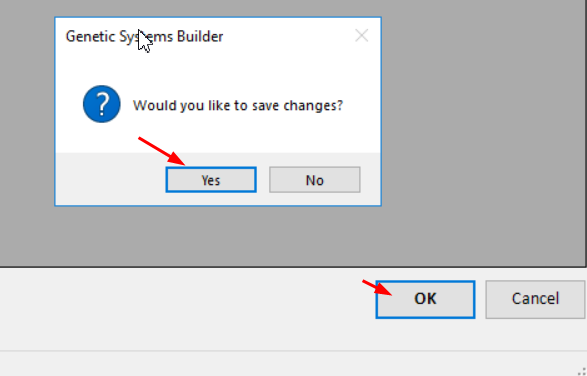Getting data into GSB
Data is stored in C:\gsb\Price Data. This can be exported from Tradestation / MultiCharts / quote.com etc to GSB.
This section assumes the contract data is already in GSB. See

Open a 1 minute chart in TS/MC
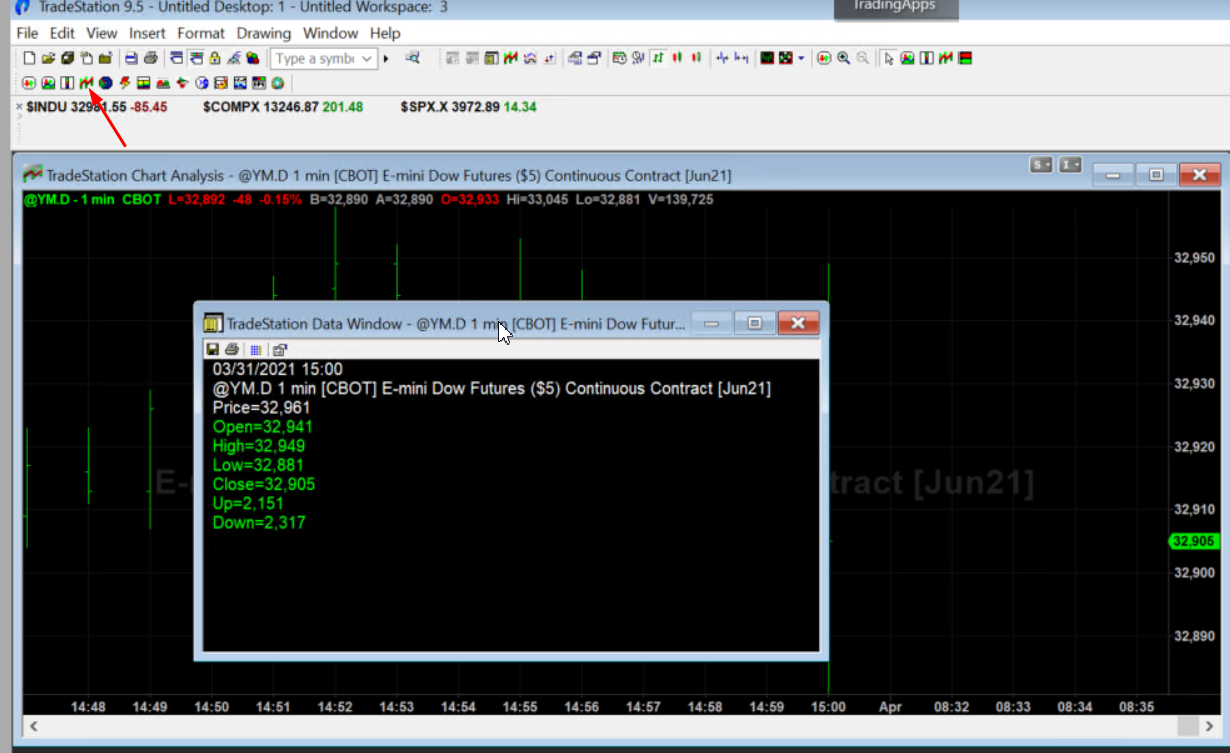
for mini dow we are using the start date of when the contract is fairly liquid. (8/1/2002)
1 minute bar is used as this can be multiplied by 30 in GSB later
its VIP to use tick count for volume, and GSB volume settings must match. If you get this wrong indicators that use volume will not match TS/MC
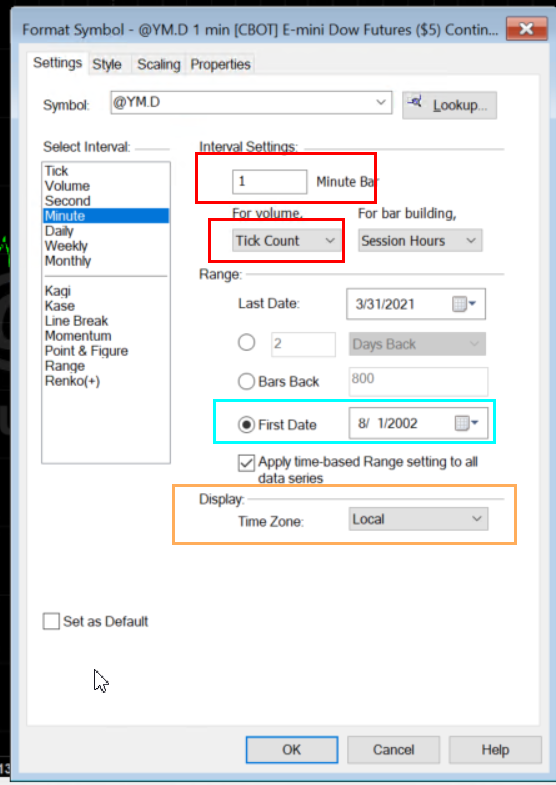
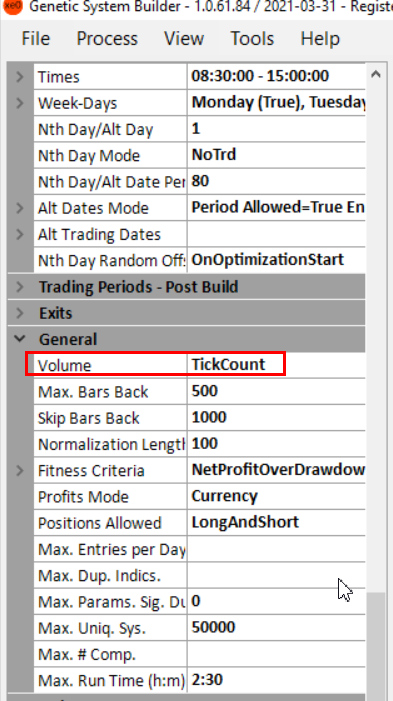
For futures in stock market indices, we do NOT use the last 15 minutes. This trades better and fixed market on close issues
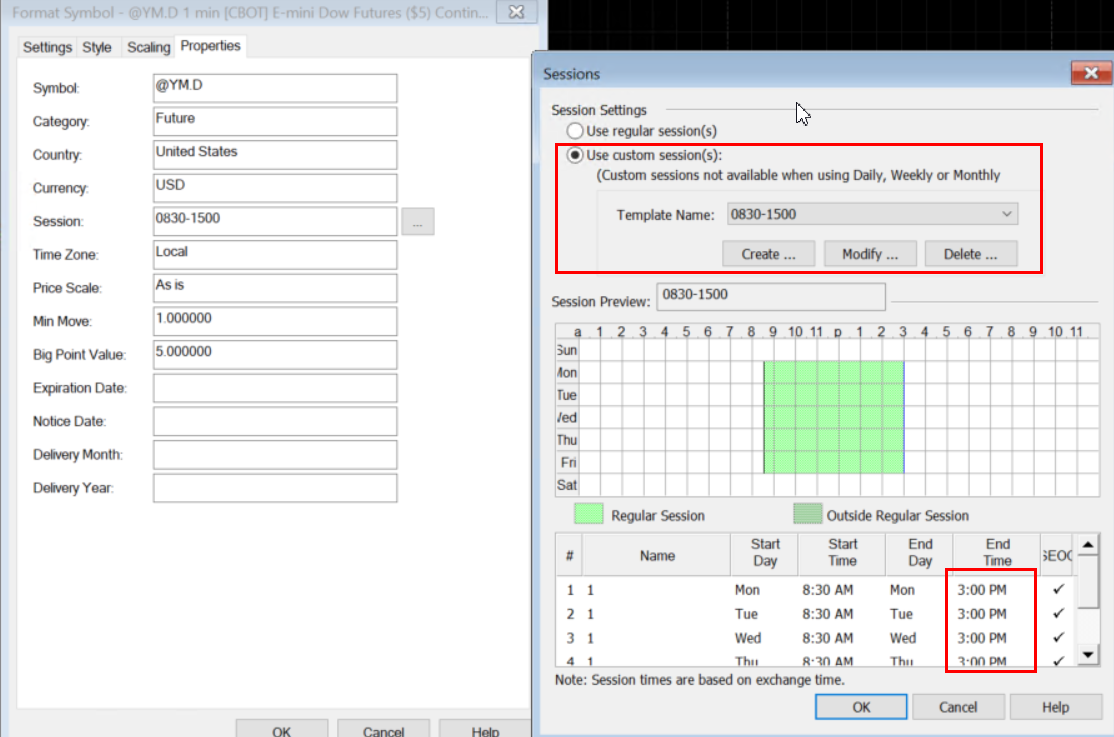
IN TS, click save
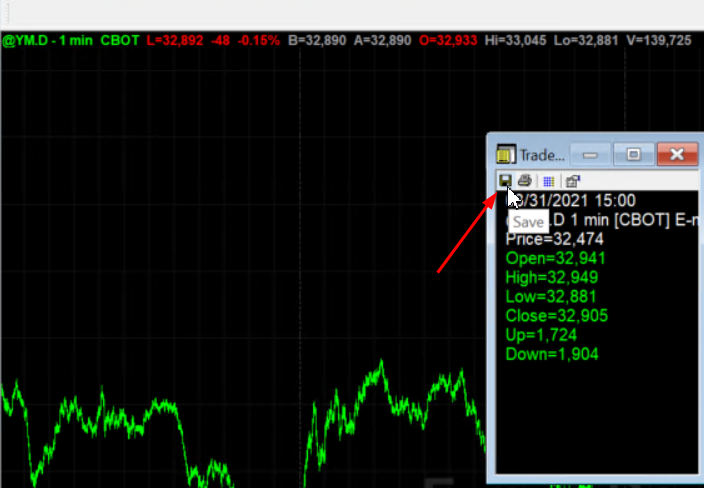
Navigate to C:\GSB\data\Price Data and create a folder for YM.
Creating a folder is optional, but it keeps the data manager much tidier.
C:\GSB\data\Price Data
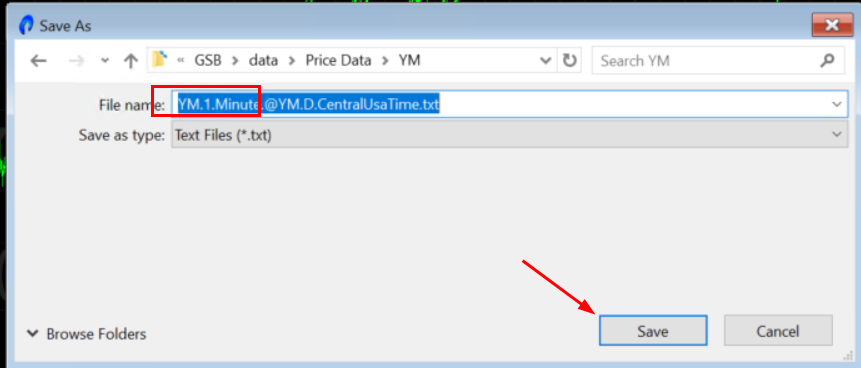
The format is symbol.x{minutes}.Anythingulike.txt (other formats like ticks also supported)
Open GSB
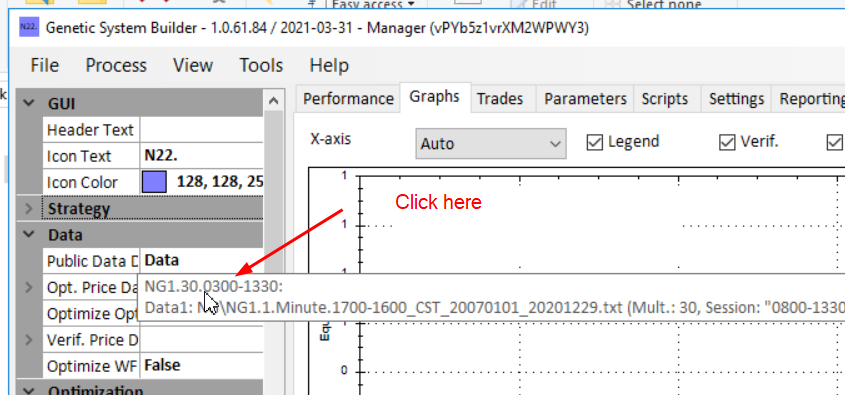
Below, type in name for your reference
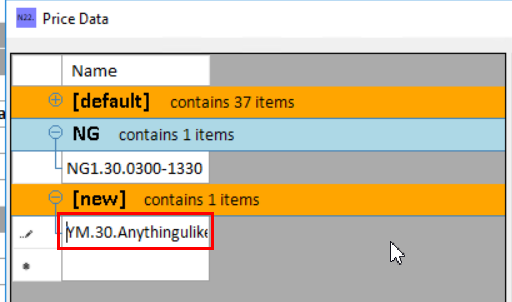
Below, click top then bottom arrow
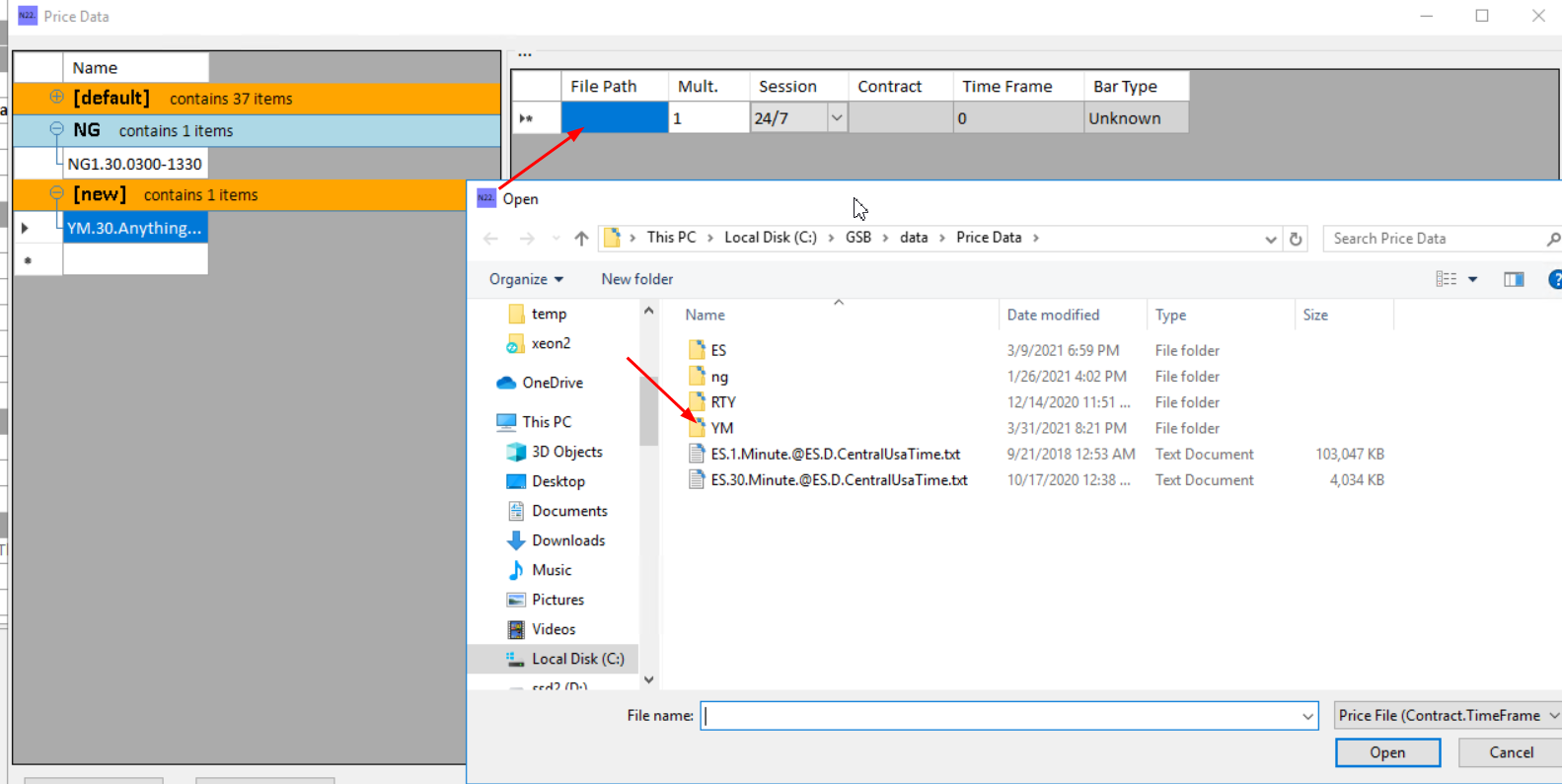
Click on this file, but see the optional next picture first.
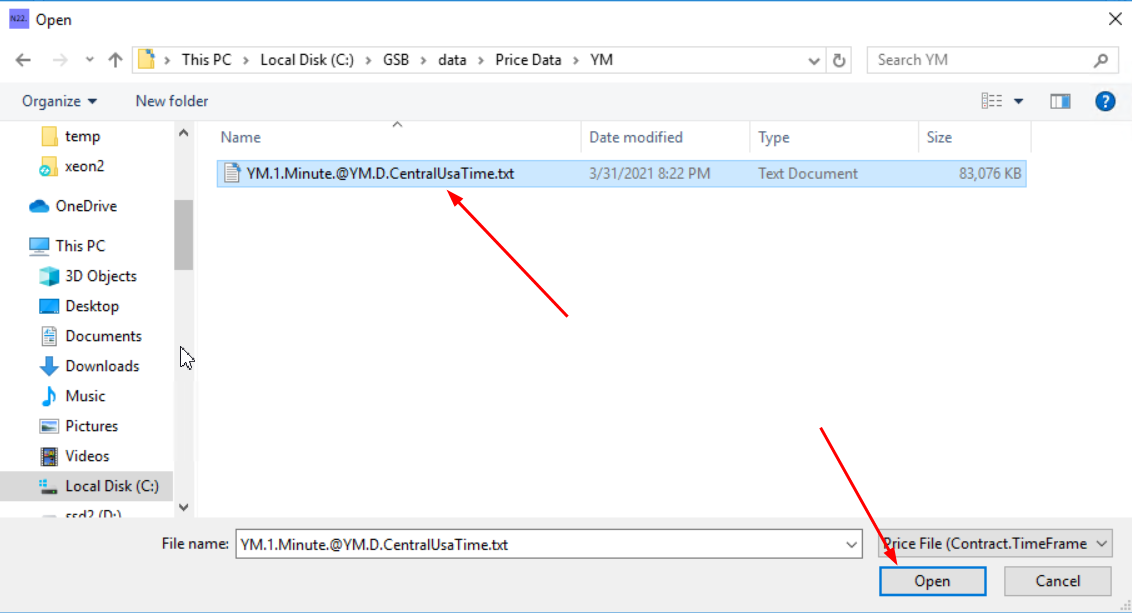
Optional, open the txt file.

Below, Note the close time. We need to know this shortly
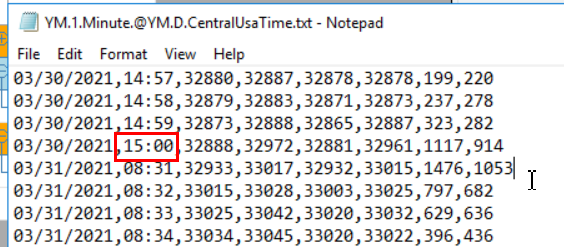
Chose the correct session time. If your data was on local time, and your computer was on eastern USA time, then this would be 930 to 1630
This file is in Central USA time.

Change the multiplier to 30. For most markets 30 minutes is best.
You might need to make the correct session time under tools, session list
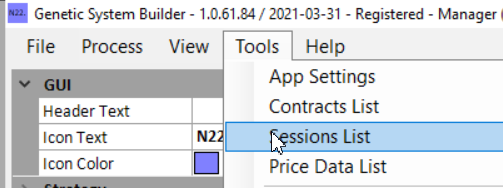
You can add other data, IE $dow (or anything you like) or the same symbol on multiple time frames.
Clone the above symbol
Note also the option to create data with random noise added can also be done. If used add 4 data streams of 4 random ticks and 4 data streams of 8 random ticks.
This is for advanced users & i rarely use this myself.
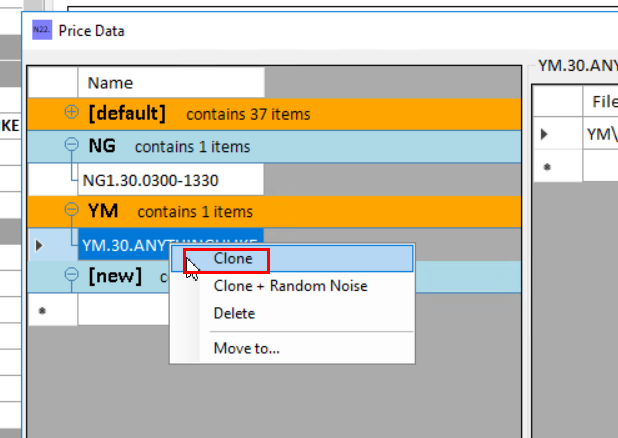
Here is 15 min data1 and 30 min data2. For a few markets this works better than 30 minute - but its slower to build systems on and often only slightly better.

Save changes
